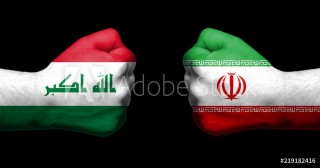What does Raisi's appointment to Iran's presidency mean for Iraq?
The victory of the conservative candidate in the recent Iranian presidential elections, Ebrahim Raisi, sparked mixed reactions about the nature of the expected Iranian role in Iraq. The two countries have always been closely aligned. But how will the Iranian role in Iraq change after the appointment of Raisi? How will Iran's strategic priorities be reassessed, and what are the implications for Iraq?
Towards a new Iranian approach to Iraq
The period after the assassination of Quds Force commander Qassem Soleimani last year showed a major imbalance in the Iranian role in Iraq. The most prominent features of this imbalance were the failure of the new commander of the Quds Force, Ismail Qaani, to fill Soleimani's vacuum. This was in addition to the occurrence of factional rebellions, popular demonstrations, and American pressures, which in turn complicated the effectiveness of Iran's role in Iraq.
It is believed that Raisi's rise to power may usher in a new shift in this role. The completion of the conservatives' control of all political and security institutions in Iran will create a state of unity and integration with Iranian goals in Iraq. This could be in a way that leads to a new Iranian repositioning in Iraq, that differs from what Iran is seeking.
A number of features will represent the new Iranian approach to Iraq in the Raisi era. They are listed below.
1- An attempt to create unity in the Iranian political discourse with Iraq and the Middle East as a whole, is one of the main reasons behind the selection of Raisi by the conservative movement and the Revolutionary Guards. His appointment has the support and backing of Iran's Supreme Leader Ali Khamenei.
That is why the differences that emerged between former President Hassan Rouhani and the Revolutionary Guards over the Iranian regional role are expected to end in the Raisi era. Under Raisi, Iraq will likely have to face a single Iranian policy and discourse, rather than several different and overlapping policies and discourses.
2- The Quds Force's strategy in Iraq, especially the post-Soleimani assassination, was based on bringing about continuity and a change in the way Iran operates. The Quds Force aims to consolidate its influence in Iraq, in the face of the influence of other Iranian parties, most notably the Intelligence Service and the Foreign Ministry. These parties control several armed factions, religious and security leaders, and active media institutions. Iranian interference in Iraq has greatly complicated its role and the effectiveness of the Quds force in Iraq. With Raisi's arrival, this force will try to regain control over Iraq, away from the influence of other parties.
3- It is expected that the Iranian role in Iraq will see a restructuring of the relationship with the armed factions. This is likely to be towards a more central framework in the hands of the Quds Force and the Iraqi arm of the Revolutionary Guards. This will be achieved by building a new strategy, redistributing roles and curbing the factional rebellions that rose during the time of Rouhani.
Iran's strategic priorities in the Raisi era
Iran has always tried to maintain its strategic priorities in Iraq, despite the many challenges it has faced. These priorities will remain under the new Iranian president.
The most prominent of these priorities are set out below.
1-Iran aims to continue consolidating its influence in Iraq along with obstructing any process of Iraqi openness to its Arab and international allies. It wants to thwart any regional efforts that try to extricate Iraq from the Iranian grip. Specifically, this involves the economy, trade and energy.
Iran also wants to accelerate the removal of US forces from Iraq. This is supported by the Revolutionary Guard.
2-Iran wants to empower the armed factions inside Iraq and strengthen their ability to absorb the governmental measures taken by Iraqi prime minister Mustafa Al-Kazemi's government against them.
3-Iran also wants to make Iraq part of its strategic balance in the Middle East. It wants to link Iraq to the regional role of the Revolutionary Guards, and try to keep the country away from any regional or international discussions related to Iranian influence and regional policies.
4- Although Iranian policy toward Iraq did not change during Rouhani's era, his presence posed an obstacle to the Revolutionary Guards' efforts to expand its influence in Iraq. This approach, however, is expected to change in the era of Raisi, with the Revolutionary Guard predominating over other Iranian actors.


Comments